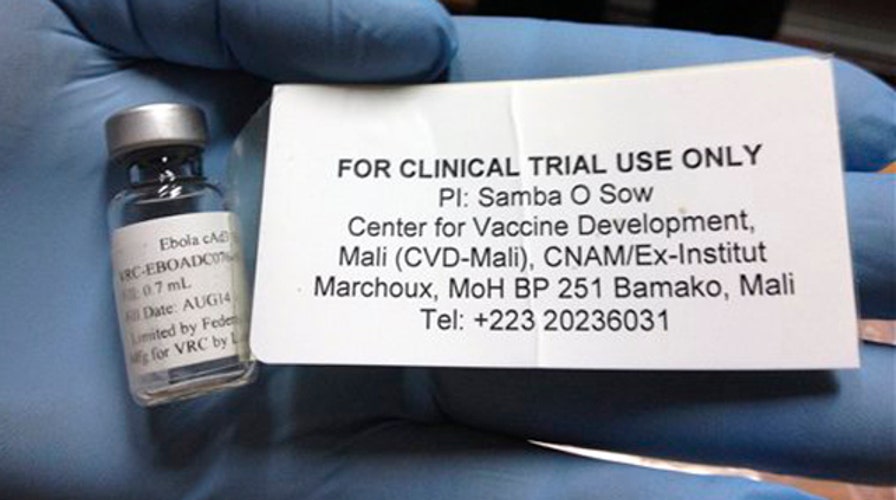While the National Institutes of Health hasn’t yet developed an Ebola vaccine, "human testing of an experimental Canadian-made Ebola vaccine began Monday."
Imagine cities, countries, and entire continents ravaged by Ebola-like outbreaks, with millions dying in the streets from crippling, incurable, and fatal diseases. That is what the world looked like before the middle of the last century - before the widespread use and development of vaccines that eradicated these diseases. [pullquote]
The images and nightmare of the West African Ebola outbreak gives us a glimpse into that prevaccination world. If we stopped vaccinating our children, we would be battling dozens of formerly controlled diseases that would make the Ebola death toll look like child's play.
According to the Centers for Disease Control and Prevention (CDC), prior to modern, routine vaccinations, "diseases like whooping cough, polio, measles, Haemophilus influenzae, and rubella struck hundreds of thousands of infants, children and adults in the U.S. Thousands died every year from them." With the advent of widely used vaccines, most of these diseases are practically eradicated in the developed world.
However, many of these diseases are now making an alarming comeback, though still on a relatively small scale. Celebrities like Jenny McCarthy are scaring parents out of vaccinating their children, spreading misinformation and promoting conspiracy theories, such as the long-disproved claim that vaccines cause autism.
A lack of public health education, latent mistrust of government and health authorities, resistance on the part of various faith groups, anxiety about the growing complexity and sophistication of modern medicine, and misinformation from the anti-vaccination movement have contributed to new pockets of unvaccinated populations. The very success of vaccines in eliminating widespread suffering and death has lulled many into a false sense of security and complacency about vaccinating their families.
Yet, within living memory, diseases now practically unknown to the public were taking a heavy toll on human life. A German measles epidemic in 1964-65 infected 12.5 million Americans, "killed 2,000 babies, and caused over 10,000 miscarriages." By 2012, due to widespread vaccinations there were only 9 cases of this type of measles reported to the CDC.
But now, in 2014, we are witnessing the largest outbreak of measles in recent U.S. history, with over 300 recently confirmed cases among unvaccinated communities, and "almost 8,000 cases of pertussis, better known as whooping cough ... reported to California's Public Health Department" this year.
The anti-vaccination movement has, not surprisingly, also been spreading lies, misinformation, and conspiracy theories about Ebola, too. The so-called “Vaccination Information Network” (which has over 100,000 Facebook fans) rhetorically asks if Ebola is "yet another fake pandemic set up to poison us with drugs and vaccines". Other such sites erroneously suggest that "red algae extract" and various other simple plant formulations could effectively treat Ebola, but that pharmaceutical companies, the CDC, and media are pushing unnatural and dangerous vaccines instead.
For now, such conspiracies remain confined to a fringe, yet growing, movement here in the U.S. However, in West Africa, efforts to control the Ebola outbreak are hampered by unfounded fear and suspicion of modern medicine, reliance on herbal medicine, and even belief in witchcraft; not so different from the dangerous misinformation being spread by our own, home-grown anti-vaccination community.
In the end, the gut-wrenching images and stories of Ebola victims serve as a reminder of how vulnerable we remain, in the era of global travel, to the spread of deadly infectious diseases, and how reliant we are on the continued ingenuity of modern medicine for our health. We must continue to educate on the benefits of vaccination, while challenging the charlatans who would expose our most vulnerable to harm.
If the anti-vaccination vision prevails, the small scale horror we are witnessing today in the form of Ebola would be magnified. In a world without vaccines, dozens of diseases, such as smallpox, polio, diphtheria, and others, would rage out of control, periodically wiping out our vulnerable young, old and infirm (and healthy adults, too, every so often) as they routinely did, just decades ago.

